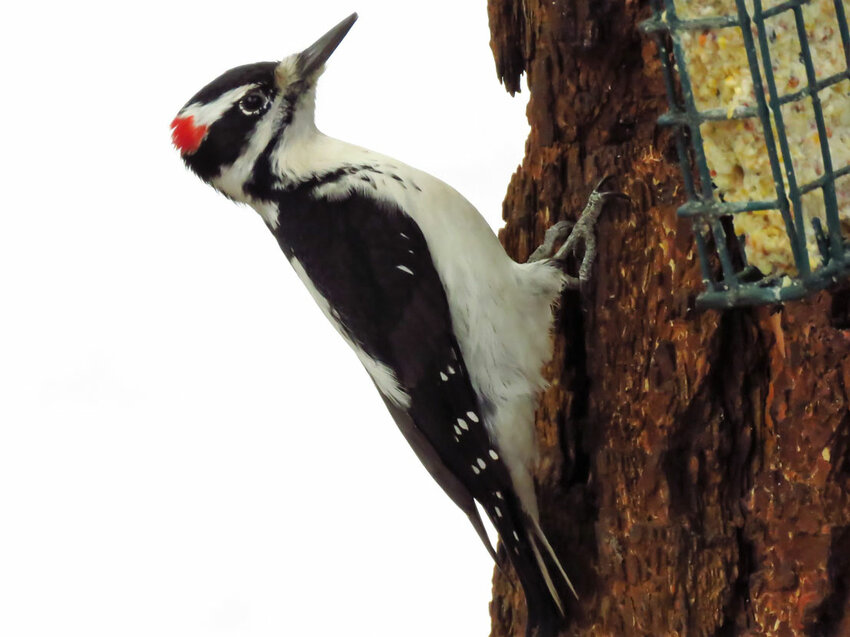
Photo courtesy Charles Martinez
This week’s Bird of the Week, compliments of the Weminuche Audubon Society and Audubon Rockies, is the hairy woodpecker.
Many woodpecker species exhibit adaptations which support a lifestyle of uncovering insects living near the surface of, or buried deep within, trees. Among these are a straight, chisel-shaped bill which allows them to drill into wood without getting stuck, shock absorbers in the skull to dampen the blows from pounding on wood and stiff tail feathers to brace upright on a trunk. A clear, extra eyelid keeps out the wood dust.
A hairy woodpecker can rotate one of its four clawed toes to achieve the best balance for hanging on to a tree trunk. It may locate prey by tapping along the trunk or a large branch of the tree to hear the difference when it is above the tunnel of a wood-boring insect. This is followed by chiseling in to reveal the tunnel and then by using its long, barbed tongue to rake out the insects.
Although insects make up more than 75 percent of these woodpeckers’ diet, they also show signs of a sweet tooth. They will drink sap from wells created by sapsuckers, peck into sugar cane and hang on by their toes to drink nectar from hummingbird feeders. They readily come to eat at suet and sunflower seed feeders, wedging seed into bark crevices to crack it open.
Hairy woodpeckers have a widespread range which covers most of North America and dips south as far as Central America. Seventeen subspecies which differ in size and plumage shades are recognized.
In our area, hairy woodpeckers are robin-sized birds with white undersides, a black back with a central patch of long white feathers, black wings checkered with white, and two white stripes on the head. Males have a red patch on the back of the head. It can be a challenge to differentiate between hairy and the nearly identical, but smaller, downy woodpeckers unless the two are seen together.
For information on future events, visit www.weminucheaudubon.org and www.facebook.com/weminucheaudubon/.